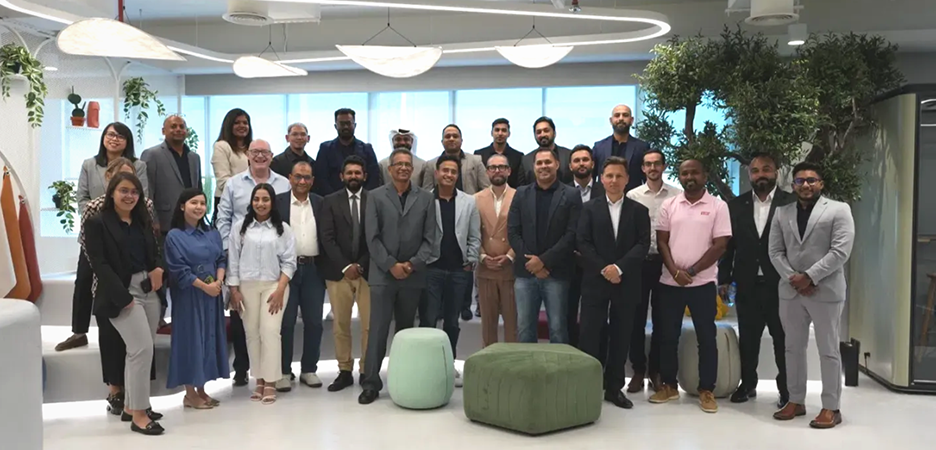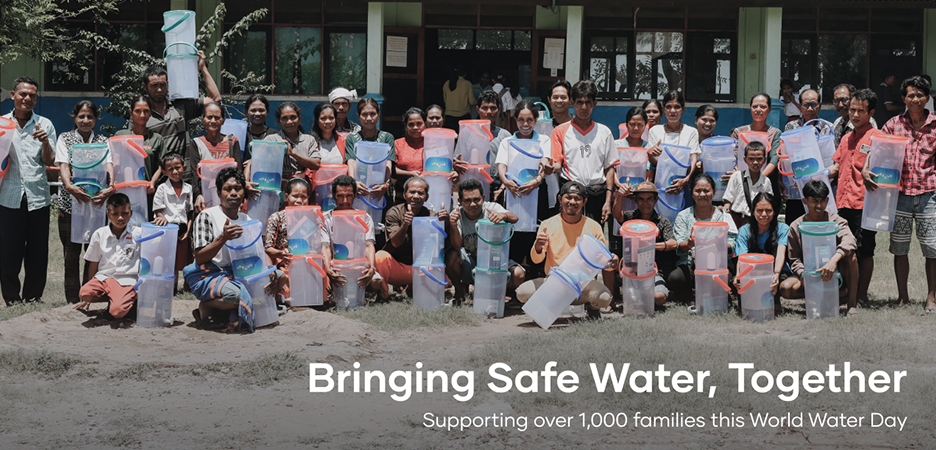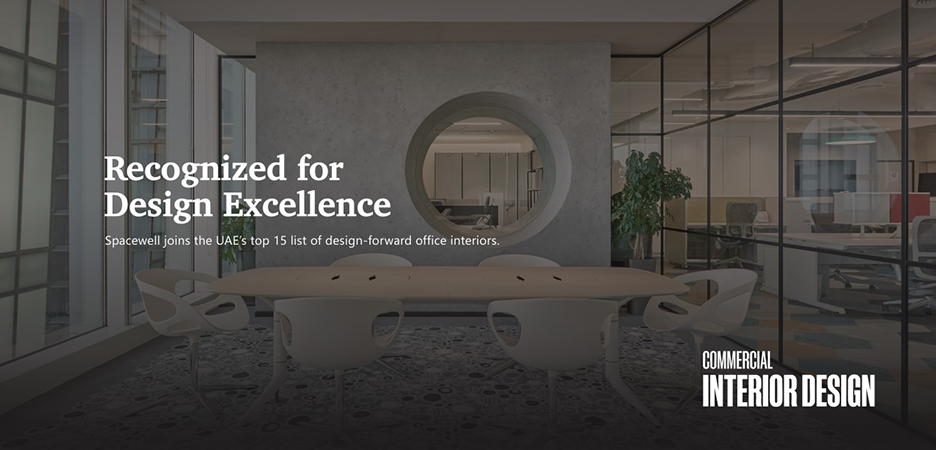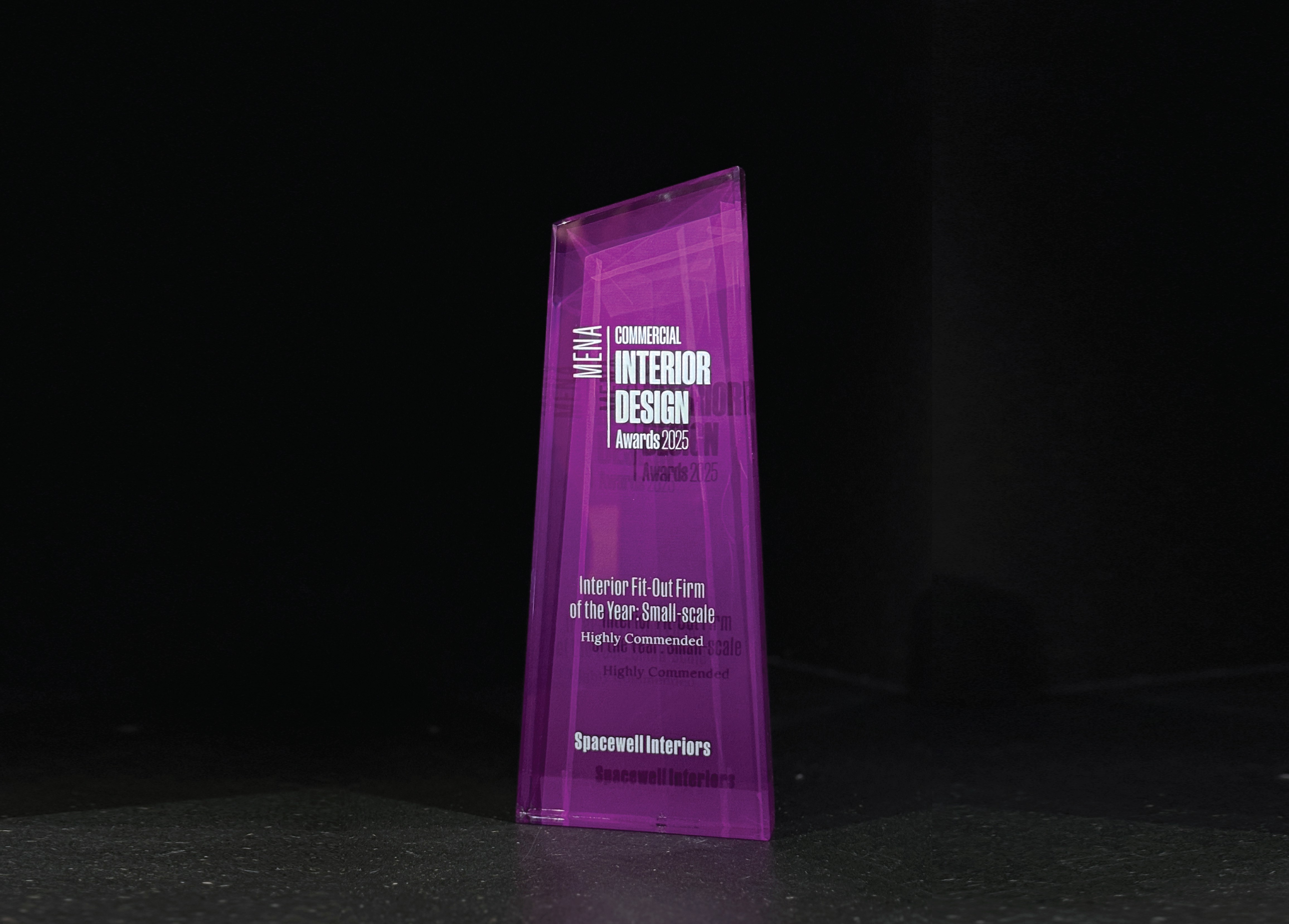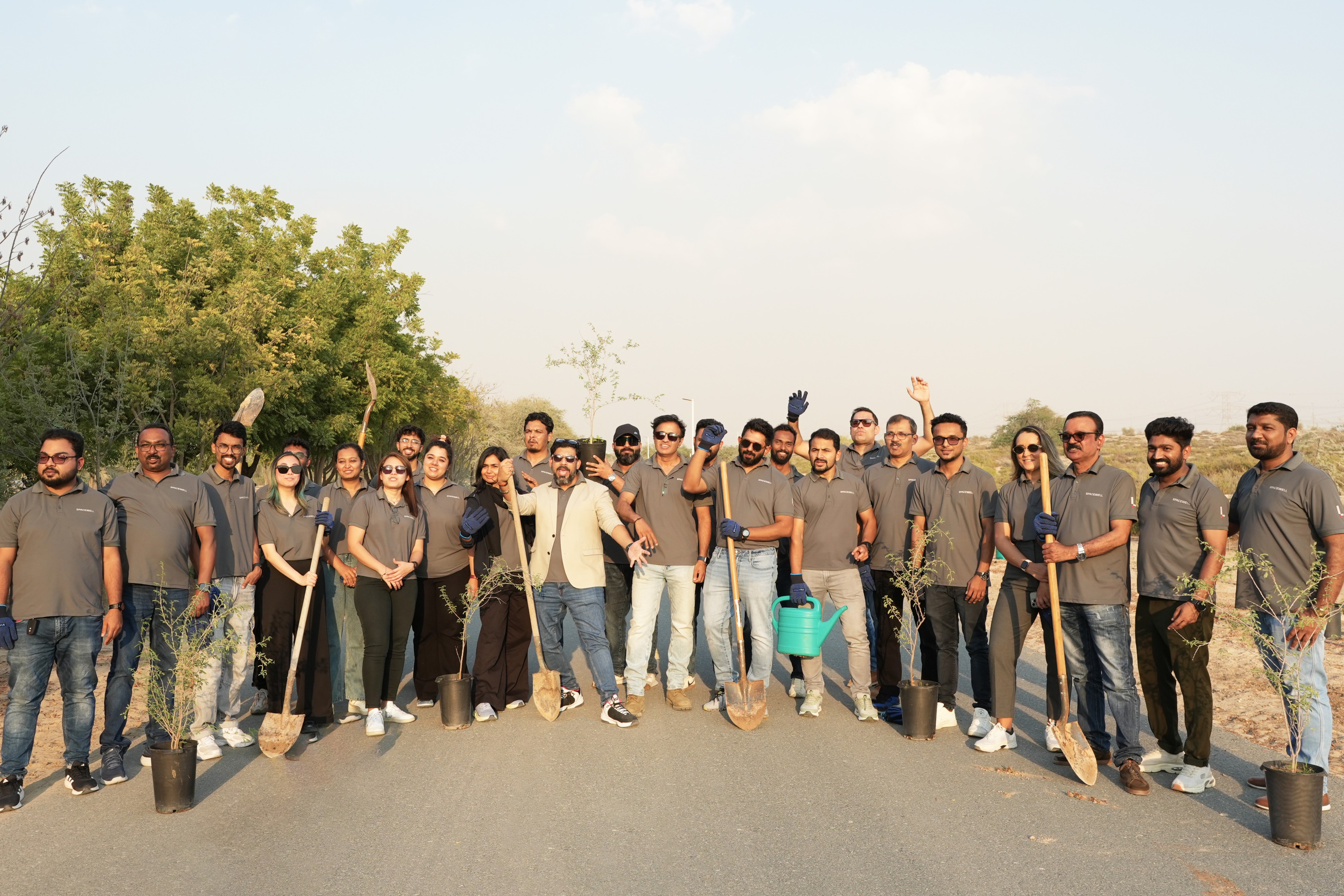Share this
Driving Sustainability: A Year of Significant Progress
Our commitment to sustainability goes beyond design—it’s a core value that shapes every decision we make. We believe in creating not only beautiful and functional workspaces but also a positive environmental impact. Over the past two years, we’ve seen remarkable progress in our initiatives, taking meaningful steps to reduce our environmental impact and contribute positively to the planet. With the help of our dedicated team and partners, including eco-conscious organizations like Shred-it, we’ve made great strides in minimizing waste, conserving resources and embracing eco-friendly practices.
Our Environmental Accomplishment
Building on the solid foundation we established in 2023, Spacewell Interiors made significant strides in 2024 with our sustainability initiatives. We are proud to share our key achievements from the past year, which demonstrate our ongoing commitment to minimizing our environmental impact:
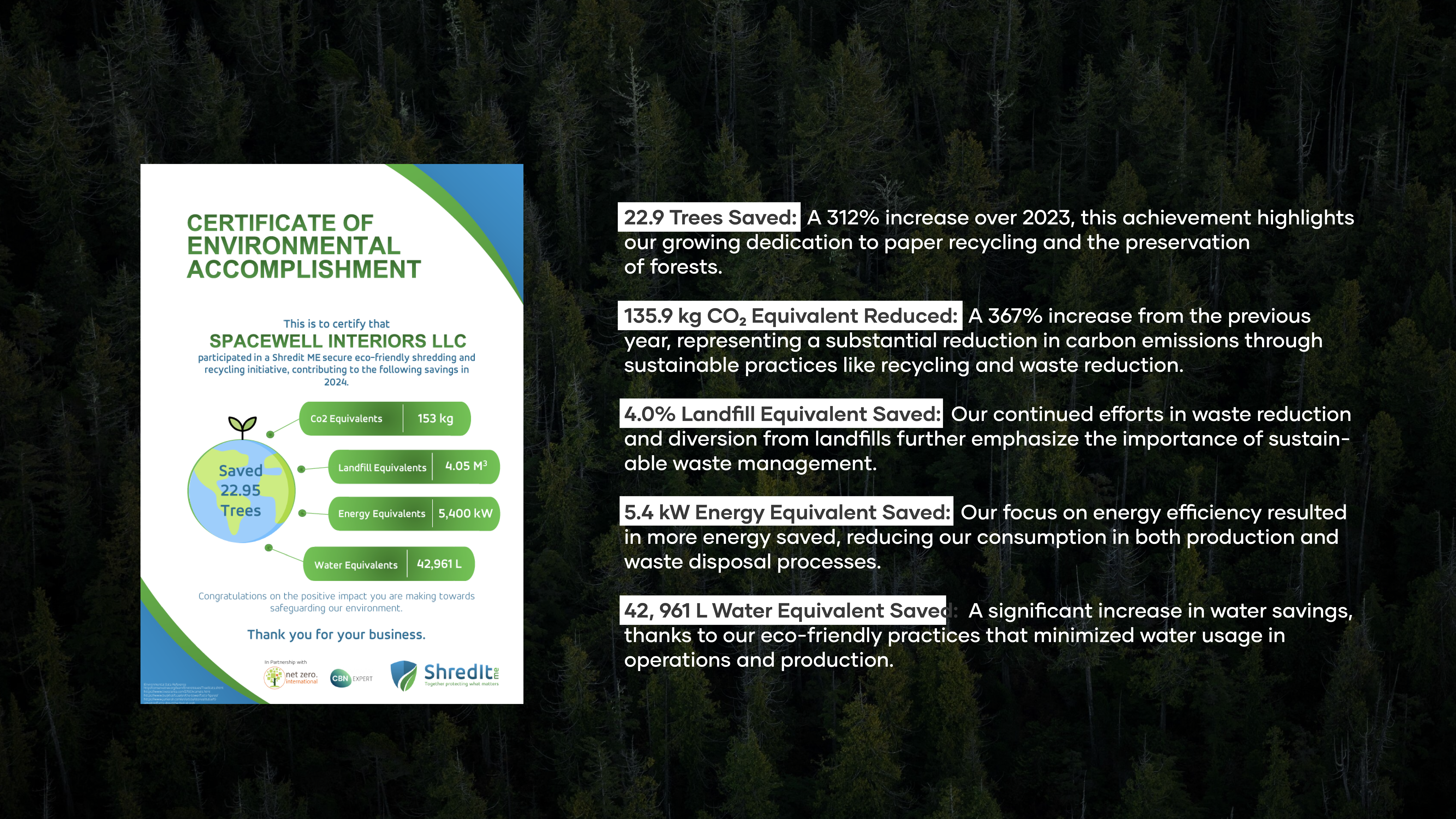
Performance Evaluation: Glass and E-Waste Collection
Looking at our performance from 2021 to 2024, we are pleased to report impressive progress in glass recycling efforts, even as we focus on minimizing e-waste collection:
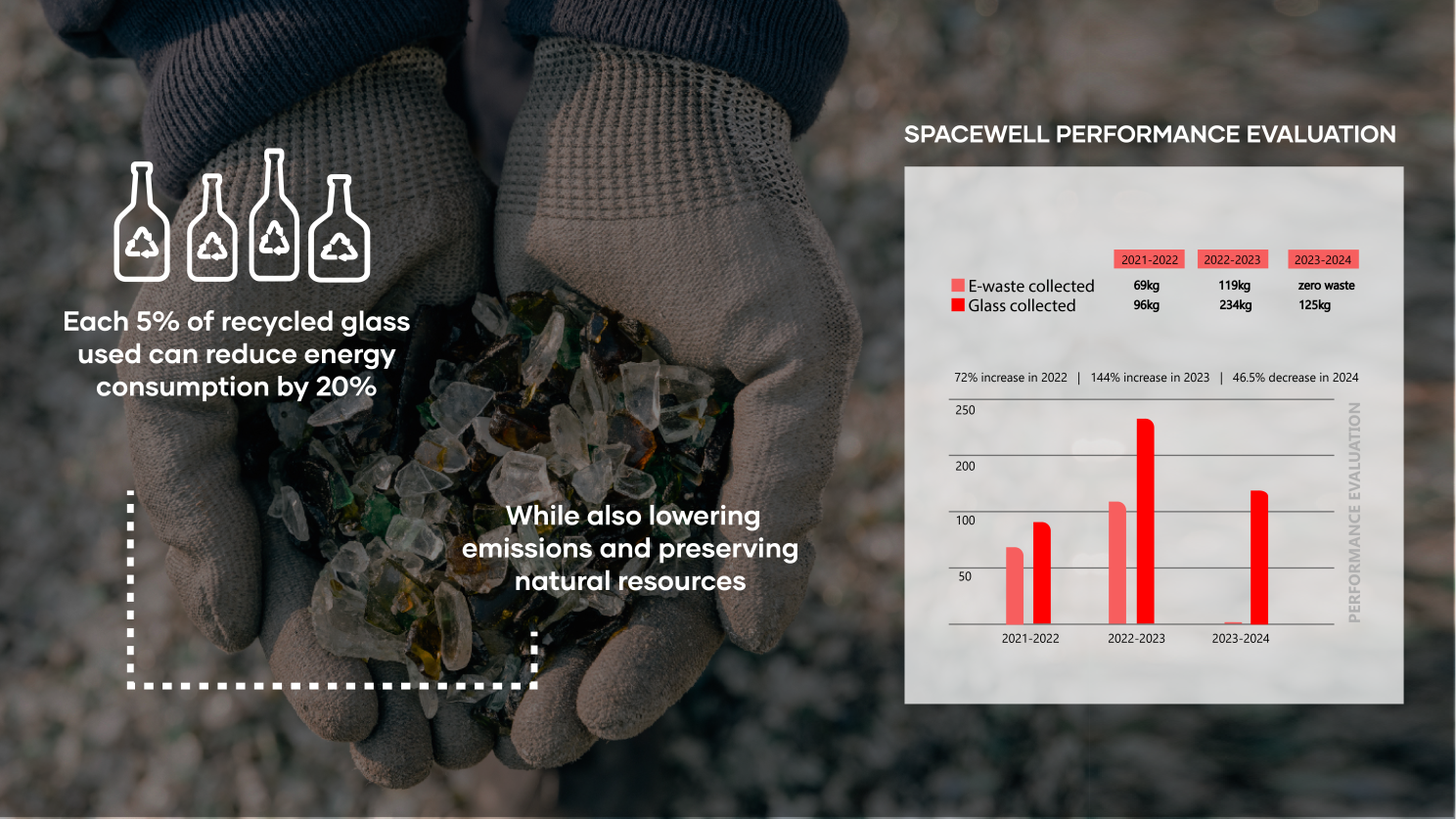
Our focus on improving glass collection in 2022 and 2023 has led to higher recycling rates, though we recognize a slight decrease in 2024. This reduction reflects our efforts to refine our processes, aiming for greater efficiency and resource conservation.
Glass Recycling Report
Spacewell has been actively involved in glass recycling as part of its sustainability efforts. The report highlights the progress made over three years in terms of the amount of glass collected and recycled.
- 2021-2022: 96 kg of glass were collected for recycling. This was the baseline year for Spacewell's glass recycling efforts.
- 2022-2023: A significant increase of 144% occurred, with 234 kg of glass collected. This demonstrates the company’s focused efforts to increase glass recycling by promoting better practices and engaging stakeholders in recycling initiatives.
- 2023-2024:The report shows a 46.5% decrease in the amount of glass collected, dropping to 125 kg. This decrease reflects ongoing improvements in Spacewell’s processes, where resources are being used more efficiently, potentially reducing the need for higher amounts of recycled glass. It's a sign of more effective use and less waste generation over time, which can contribute to resource conservation.
E-Waste Report
The report also includes performance on electronic waste (e-waste) management, which is another critical area for sustainability.
- 2021-2022: Spacewell collected 69 kg of e-waste, representing the start of their e-waste management program.
- 2022-2023: There was an increase of 72%, bringing the amount of e-waste collected to 119 kg. This indicates that more effort was put into managing and collecting e-waste in this period, aligning with the company’s environmental goals.
- 2023-2024:Impressively, Spacewell achieved zero e-waste collected in 2024. This is a major achievement, as it reflects the company’s effort to minimize e-waste production by adopting more sustainable practices, perhaps by reducing electronic waste, reusing devices, and encouraging repairs or recycling of old electronic equipment instead of sending it to landfills.
Sustainability Beyond Numbers: On-going LEED Projects

At Spacewell, sustainability is not just a goal—it’s embedded in every project we undertake. Regardless of whether projects pursue LEED certification or not, our sustainable approach is embedded in our system, making it easy for any project to reach certification with minimal adjustments. Notably, our ongoing design and build projects follow our sustainable design practices, even without pursuing LEED certification. These projects are at the forefront of sustainable design, focusing on critical areas such as Water Efficiency, Energy & Atmosphere, Materials & Resources and Indoor Environmental Quality. Each of these efforts is a part of our long-term commitment to creating high-performance workspace interiors that contribute to energy efficiency, reduced carbon footprints and healthier environments.
Spacewell Pursuit of WELL Certification
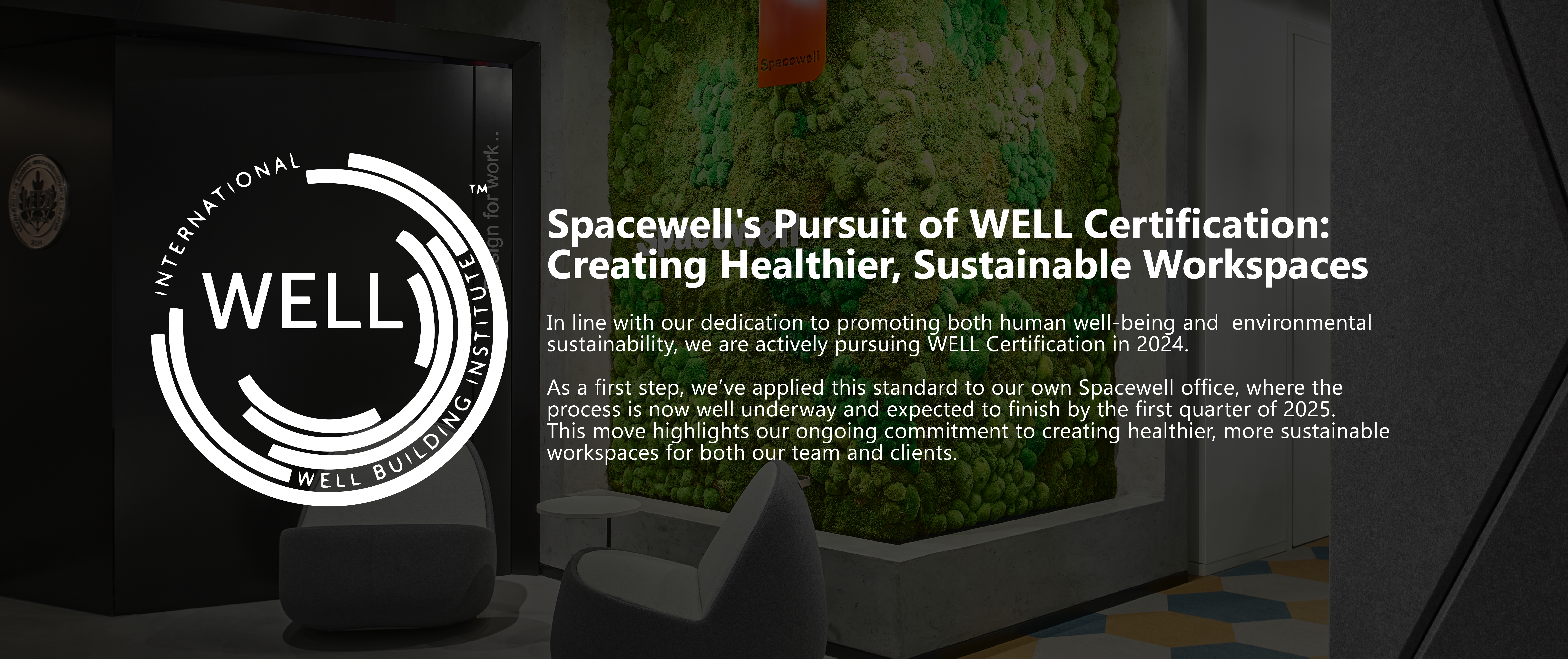
In addition to our LEED certifications, we are also moving forward with our WELL Certification for our future projects. The WELL Building Standard focuses on human health and well-being, adding another layer of sustainability to our projects.As a first step in integrating the WELL Certification standard, we have applied this prestigious framework to our own Spacewell office. This marks a significant milestone in our commitment to sustainability and well-being. The certification process is currently underway, with our team working diligently to ensure that every aspect of the office aligns with WELL’s criteria. We expect to complete the process and achieve full certification by the first quarter of 2025.
This initiative is not just about meeting a certification standard; it reflects our deeper commitment to fostering environments that support the health, well-being, and productivity of everyone who works within them. By taking the lead with our own office, we are not only ensuring that our team enjoys a space that promotes optimal physical and mental health, but we are also setting an example for our clients. This proactive approach will guide our future projects, reinforcing our dedication to designing workspaces that balance environmental sustainability with human-centered design.
Looking to the Future: What’s Next
Our sustainability journey is far from over. In 2025 and beyond, we plan to continue pushing boundaries and embracing new opportunities to make an even greater impact. As a company, we will keep challenging ourselves to implement innovative solutions, conserve more resources and minimize our environmental footprint. We're motivated to lead by example and encourage our employees, clients and partners to join us in this important mission.
Let's build a future where every space we design not only contributes positively to the environment but also fosters healthier, more productive communities.
